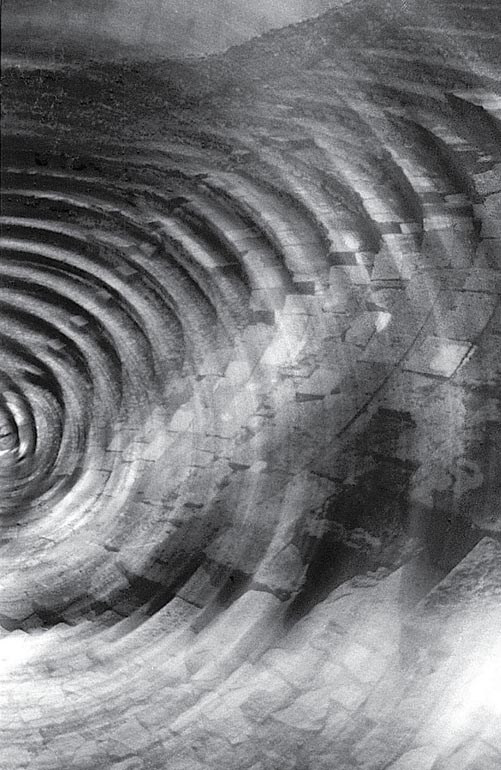A Philosophy of The Role of The Contemporary Teacher - Growing Demands On The Contemporary Teacher

Growing Demands on the Contemporary Teacher
All eyes seem to be turning towards education. Contemporary civilization is science-based, and during recent times, there has been an increasing growth of democracy. There is also today an unprecedented explosion of information and unprecedented speed of communication. As a result, an increasing mass of the human race is getting seized by the need to grow in awareness and knowledge and to determine their future by conscious and deliberate participation in the process of development.
The goal of education for all has gained universal acceptance. In every discipline, educational activities are being designed to upgrade knowledge and update skills. Early childhood education is being increasingly emphasized; programmes are being envisaged and implemented to encourage involvement of adults in helping young children overcome socio-economic or socio-cultural handicaps and prepare themselves for school life.
School education is being intensified and diversified. Higher education and research are undergoing momentous changes as a result of the unparalleled width and depth of the contemporary quest. Adult education and lifelong education are being advocated with increasing insistence; bridges between the world of education and the world of work are being built, and higher targets are being pursued to help people broaden their cultural background, enhance their potential and talents, and develop their personalities.
The ideal of a learning society is being increasingly acknowledged. Two global problems have begun to underline the importance of education and to profoundly influence the objectives of education.
First is the problem of peace. At a time when advancing knowledge has the potential to serve the highest aims of civilization, man seems to be drifting in a direction that might bring about a fatal disaster. Every passing day shows up the dangers threatening peace.
Tensions of all kinds are becoming more marked. The arms race, which swallows up enormous sums of money which would be enough to eradicate poverty and restore human dignity to hundreds of millions of inhabitants of the developing countries, directly counters the efforts made to establish a new world of justice, equality and unity. More than ever before, there is a need to urgently and imperatively build the defenses of peace in the minds and hearts of men. It is increasingly realized that education, suitably designed, can prove to be the most effective means of building these defenses.
The second problem is that of development. At a time when the world is shrinking, the gulf between the rich and the poor is widening. The sharp disparities of development and asymmetrical relations among nations are impelling disadvantaged countries to seek unattainable goals.
The resulting vicious circle of dilemmas and predicaments can be broken, it seems, only if it is realized that development, like peace, is indivisible and that not by competition and exploitation, but by mutual help and cooperation can the goals of development be realized.
In order that this realization to be shared and practised increasingly and effectively, there must come about a change in attitudes and a change in the very working of human consciousness. It is being increasingly admitted that this task can best be accomplished by education that does not merely instruct but which also illumines and transforms the ordinary springs of thought and action.

Several other tendencies and trends are at work. Today there is a great quest all over the world towards the synthesis of knowledge and synthesis of culture. Ancient knowledge is being recovered in the context of modern knowledge. Humanities, sciences and technologies are being brought closer to each other. The need to synthesize the pursuits of ethics and aesthetics is being felt more and more imperatively. And, there is a growing aspiration to build bridges between science and spirituality.
It is being affirmed more and more insistently that what we need today is man-making education. It is pointed out that our present educational system is subject-oriented and book-oriented and that books and subjects have come to occupy in our thinking and in our educational practice, such an exclusive place, that the learner and his personality receive little attention.
What is, therefore, proposed is the development of the powers and faculties of human personality, particularly those of concentrated thought and will. Detailed and comprehensive programmes of education are being formulated, the chief aim of which is the development of integral personality. It is in this context that a special stress is being laid on the process of self-learning, learning to learn, learning to do, learning to be, and learning to become.
New methods of teaching and learning are being advocated which place the learner in the centre of the educational process. At no stage of human history was the drive towards totality and all-comprehensiveness as imperative as it is today. For, at no stage was civilization as multidimensional as it is today. The wheels of the world are spinning so fast today that we are all obliged to overpass our limitations continuously and interminably. The framework of our life is under constant pressure of change.
The scientist of today runs the risk of becoming an obscurantist of tomorrow unless he accomplishes some kind of a leap in the meantime. Nor can the scientist of today ignore the demands of ethics and aesthetics, unless he prefers to become obsolete in the march of time. Some generalities or some specializations, which were valid and useful till yesterday, are increasingly losing their relevance, and we are proceeding towards the future where a peculiar combination of wide comprehensiveness and effective specialization will become imperative, and they will have to be fused together.
This need is further reinforced by the crisis of which we hear so insistently. This crisis seems to have arisen from the fact that while the human mind has achieved an enormous development in certain directions, in others it stands arrested and bewildered and can no longer find its way. A structure of external life has been raised up. This structure is increasingly becoming so huge and complex that it cannot be managed by our limited capacities.
The system of civilization created by man has become too big for his limited mental capacity and understanding and still more limited spiritual and moral capacity to utilize and manage. While the external man has grown, the internal man remains neglected.
The resulting crisis demands the development of the inner man and organized integration of the internal and external man. If education has to become an instrument of meeting this crisis, its aim should be to cultivate, sharpen and transform the faculties and powers of personality leading towards their increasing integration and perfection. It is against this background that the contemporary teacher finds himself under a growing pressure to enlarge his functions and to prepare for an increasingly difficult role.
Related Books
- A Philosophy of Education for The Contemporary Youth
- A Philosophy of Evolution for The Contemporary Man
- A Philosophy of The Role of The Contemporary Teacher
- Philosophy and Yoga of Sri Aurobindo and other Essays
- Philosophy of Indian Pedagogy
- Philosophy of Value-Oriented Education -Theory and Practice